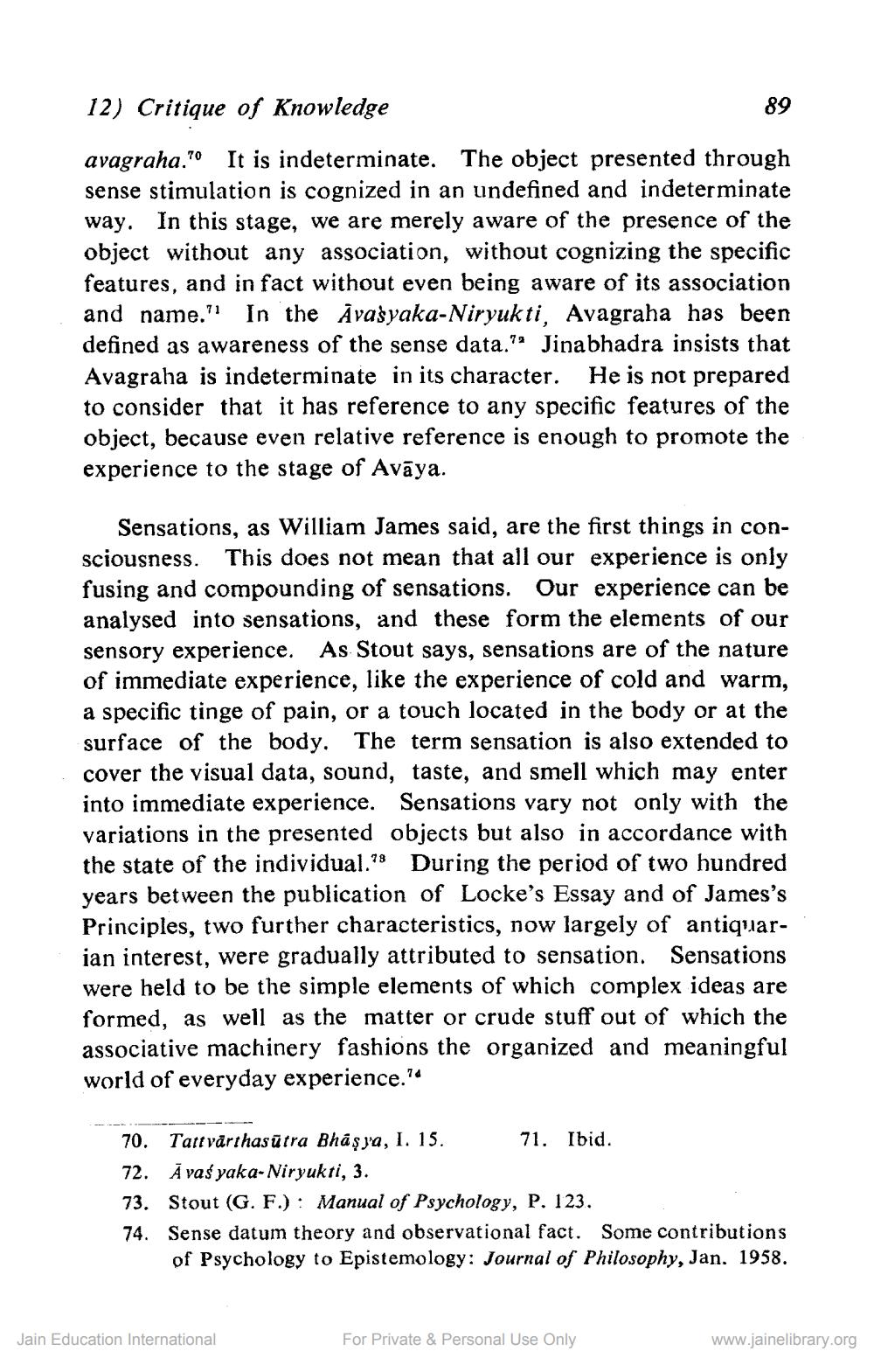________________
12) Critique of Knowledge
89
avagraha." It is indeterminate. The object presented through sense stimulation is cognized in an undefined and indeterminate way. In this stage, we are merely aware of the presence of the object without any association, without cognizing the specific features, and in fact without even being aware of its association and name." In the Āvašyaka-Niryukti, Avagraha has been defined as awareness of the sense data." Jinabhadra insists that Avagraha is indeterminate in its character. He is not prepared to consider that it has reference to any specific features of the object, because even relative reference is enough to promote the experience to the stage of Avāya.
Sensations, as William James said, are the first things in consciousness. This does not mean that all our experience is only fusing and compounding of sensations. Our experience can be analysed into sensations, and these form the elements of our sensory experience. As Stout says, sensations are of the nature of immediate experience, like the experience of cold and warm, a specific tinge of pain, or a touch located in the body or at the surface of the body. The term sensation is also extended to cover the visual data, sound, taste, and smell which may enter into immediate experience. Sensations vary not only with the variations in the presented objects but also in accordance with the state of the individual. During the period of two hundred years between the publication of Locke's Essay and of James's Principles, two further characteristics, now largely of antiquarian interest, were gradually attributed to sensation. Sensations were held to be the simple elements of which complex ideas are formed, as well as the matter or crude stuff out of which the associative machinery fashions the organized and meaningful world of everyday experience."
70. Tattvärthasūtra Bhâșja, I. 15. 71. Ibid. 72. A vas yaka-Niryukti, 3. 73. Stout (G. F.): Manual of Psychology, P. 123. 74. Sense datum theory and observational fact. Some contributions
of Psychology to Epistemology: Journal of Philosophy, Jan. 1958.
Jain Education International
For Private & Personal Use Only
www.jainelibrary.org




